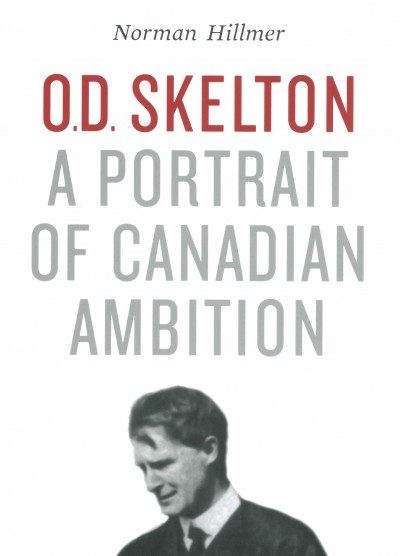Professor Norman Hillmer wins Stacey Prize 2015 for “magisterial biography” of O.D. Skelton

The Department of History is pleased to announce that Professor Norman Hillmer has won the 2015 Stacey Prize for the best book written in that year in the broad area of conflict and society in Canada with O.D. Skelton: A Portrait of Canadian Ambition. In awarding the prize the judges commended the book for “lively energetic prose,” and note that the “finely crafted judgements marshal a lifetime of globe-trotting scholarship.”
“Charles Stacey was my teacher and more than anyone else is responsible for my academic career,” Hillmer noted. “I could not be more pleased to be given an award named for him.”
The Stacey prize is awarded by the Canadian Commission for Military History and the Canadian Committee for the History of the Second World War. The judges commended the book as a landmark in understanding how Canada engaged a world torn by the great conflicts of the twentieth century and described it as follows:
Skelton, professor, public intellectual, and civil service leader, laid the intellectual foundations of Canadian foreign and defence policy in the interwar period. As professional head of the Department of External Affairs from 1925 until his death in 1941, father of Canada’s modern Foreign Service, and principal advisor to two prime ministers and Cabinet, he did much to create the machinery for guiding Canada on the world stage. Norman Hillmer’s magisterial biography demonstrates that at the heart of these endeavours was Skelton’s intense engagement with the great questions of national and collective security arising from the world wars that bracketed Skelton’s career. His decision to enter government was triggered by the grave divisions in Canada caused by the imposition of military conscription in 1917-18. That crisis, as Skelton saw it, was the result of Canada’s ties to Great Britain that had brought automatic participation in the First World War and an unfettered pursuit of victory no matter the cost. His campaign for Canadian independence was central to the creation of the modern Commonwealth, and his advice shaped a much more national military effort when Canada again went to war – this time after a decision by Parliament in Ottawa – in September 1939. Norman Hillmer relates Skelton’s odyssey in telling personal detail, seamlessly interwoven with analysis that reveals the national and international significance of his career. The lively, engaging prose is deceptive: finely crafted judgements marshal a life-time of globe-trotting scholarship.